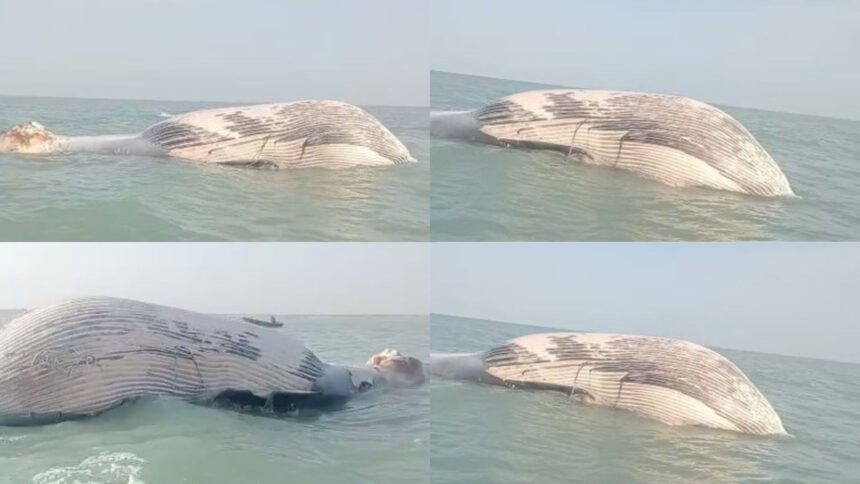A shocking discovery was made in the shared marine territory between Pakistan and Iran, where a blue whale’s carcass, about 35 feet long, was found drifting on the Gwater Bay.
The initial discovery was made by a local fisherman, Ahmad Baloch, who spotted the dead whale off Kuntani, a region located in Balochistan. Estimates say that the whale probably died several days earlier in the open sea, with strong currents then carrying its body into Gwater Bay, said Moazzam Khan, WWF-Pakistan Technical Advisor.
Although the cause of death remains undetermined, preliminary evaluations strongly indicate that entanglement in a fishing gillnet is a likely factor.
“This is disappointing for the international conservation community,” asserted Moazzam Khan, the Technical Advisor at WWF-Pakistan, highlighting the deep sorrow behind the passing of such an important organism.
He went on to stress the urgent need for strong conservation efforts, especially considering the blue whale’s status as an endangered species according to the IUCN Red List.
Despite this tragic incident, Pakistan’s marine life does have a recorded history of blue whale presence. Many records establish their presence in these waters, the latest being a live sighting on April 8, 2024, off the Gadani coast in Balochistan.
Blue whales are amongst the three baleen whales that have been sighted in Pakistani waters, along with Bryde’s whale and Arabian humpback whale, demonstrating the variety of cetaceans in the area.
Blue whales are enormous animals, known as the largest animals to have lived on our planet, with the ability to grow up to impressive lengths of about 100 feet and weighing a maximum of 200 tons. They feed primarily on huge amounts of krill, thus playing a pivotal role in the marine food chain.
This tragedy is a grim reminder of the ongoing risks to marine life and highlights the need for urgent global and national action to protect these wonderful animals for generations to come.


Leave a Reply